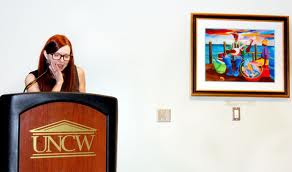April 12, 2012
Ephemera: On Writing
My historic preservation work requires a dedicated file cabinet in which I can sort without inflicting harm on my parents' paperwork. I have enough file cabinets if only I will free myself from the dozens of file folders (marked TO FILE) that contain quick hand-written notes: a word, a phrase, a sentence, an idea too valuable to pass over.
I'm now going to transfer those quick notes onto this blog so I can pitch the paper and free up a file cabinet. You'll find factoids, dialogue, excerpts, notes to myself, brilliant ideas from other people on a variety of subjects.
Today's subject is writing because the plurality of notes in the first file that came to hand this morning concerned writing.
[Side note: I've cited sources when available. Otherwise, either I wrote it or I was in the room when somebody else said it, and I thought I'd remember forever who that was.]
*****************************
**"You can say the most radical things if you couch them in the most conservative of terms."
**"The role of the artist is to hold the complexity."
* * "[I] feel about writing the way a struggling designated hitter once told me he felt about batting: 'I think too much at the plate. I ought to be just stupid up there.'
'Just see the idea and hit it' is my motto. Roy Blount, Jr., Now, Where Were We?, p. 172
**[Probably a summation rather than a direct quotation]: "A story is a sequence of actions in which a sympathetic character confronts a complicated situation which the [main, sympathetic] character struggles with and then solves." John Franklin, Writing for Story, the book to read if your plot is a tangled mess. The first time I read it, I understood little. The next time I read it, two years into working on Grace, Franklin's ideas let me access the rhythms of plotting.
*This next statement may be mine; however, if you know an alternate source, please advise:
"What's sensible,
what's wise,
what's prudent,
what's orderly,
what's the normal way of doing things --
but
sensible is not always kind;
prudent is not always merciful;
wise is not always blessed;
orderly doesn't always get the job done."
*******************
And now to the question of whether you should pursue a degree in writing? Here are four (out of roughly 100) reasons I'm convinced that the low-residency M. F. A. in Creative Nonfiction program at Goucher College saved my soul as a writer.
*Lisa Knopp showed me what was beautiful about my writing, thus empowering me to write more beauty.
*Leslie Rubinkowski wrote here and there, on, say, page 83 or 104 or page 178 of my manuscript, "This seems rather important. Maybe it should come sooner?" (Yeah. Like in the first chapter if not the first page.) Without her, my book would be slithering around without a skeleton/structure capable of holding it upright.
*Philip Gerard remarked on the strength of my book's themes but added, "Somehow you have to pull all of these themes together."
It took two years and 10 or 15 major revisions, but I ended up with a second chapter that fulfilled exactly that requirement.
*Lee Gutkind struggled to mentor me when I could hardly put two consecutive thoughts together the semester during which my husband, who had an aggressive, terminal cancer, underwent a stem cell transplant. His kindness and friendship then and later, when I was putting together the original mentoring program for the Creative Nonfiction Foundation, were life-giving.
By the way, an essay I wrote for my first Goucher workshop in August 1998 became my thesis manuscript and was picked up by Crown Publishing, a division of Random House, in January, 2000, eight months before graduation. The lectures, conversations, friendships, mentors and shared bottles of wine allowed me to write a book I could love, 2003's Grace: A Memoir, which received a Best Book of the Year award from the National Federation of Press Women.
Subscribe to:
Post Comments (Atom)




No comments:
Post a Comment